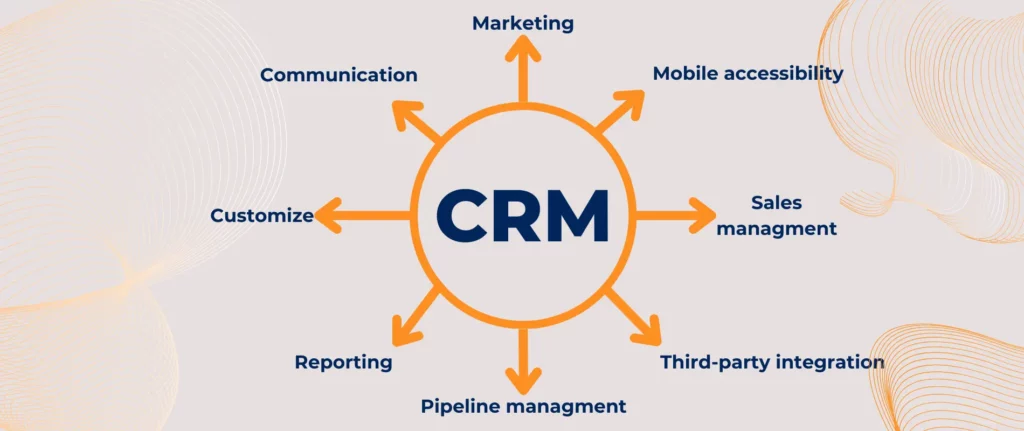CRM: advantages and efficient marketing strategies you may implement


How to use a CRM system? Here is one example to briefly explain the function of customer relationship management solutions. Imagine you are a medium-sized B2B company with a large amount of customer data daily. Hence, every day, you learn about potential ways of generating revenue, and you need to process and analyse data properly to increase sales and conversion. Precisely for these goals, you can develop a CRM system to consolidate disparate information within one solution.
In this post, we touch upon the question of CRM benefits for enterprises and the most widespread types of CRMs. So, if you have been thinking of centralising data on leads, customers, and prospects in a single space, please keep up with reading this article.
CRM (customer relationship management) encompasses technologies and approaches for the organisation’s outreach development and management; optimisation of client interactions. The system establishes space for continuous communication between the company and clients – both existing and potential. Thus, for the company, implementing CRM improves customer satisfaction, loyalty, and retention. The system is comprehensive and versatile, so each and every request, demand, preference or complaint is accessible for employees to process. For customers, CRM is beneficial in terms of better service/product support and timely interactions with the business.

Modern customer relationship management is centred on various types of data utilised for informed and efficient decision-making. This data is located within different channels, from social media and website interactions to emails and calls. Each channel can serve as a reservoir for analysing buying behaviours customers’ current needs and preferences.
CRM exceeds the capacities of database and communicative channels solely with customers: it enables employees to contact vendors, contractors, and suppliers.

CRM tools can be both cloud-based or on-premise. Either way, the system provides businesses with numerous advantages, including robust security protection, real-time access and update delivery. The core set of benefits contains the following:
A deep understanding of customer’s needs underlies excellent customer service. When your staff members have seamless access to clients’ purchase histories and interactions, they can deliver more value for customers while consulting. As a result, you obtain enhanced client loyalty.
Picture that you have hired a new salesperson. How do you teach a new employee to follow the tried and tested strategies for closing the deals successfully? You can do so through a CRM system, where all the ideas for up-selling and cross-selling are preserved. Similarly, account managers can take full advantage of data already prospected and qualified by a sales rep.
Since a multitude of manual and administrative tasks can be effortlessly automated by Custom CRM software, your team can concentrate on fundamentals – nurturing leads and making successful deals. Therefore, a company gains a competitive edge. Among the examples of operations that can be automated are email marketing, logging, reporting, lead generation and others.
All sales and marketing performance results are diligently analysed within the CRM solution; thus, your team gains insights on conversion rates by deal velocity, average deal size, etc. It helps find out promptly which strategies work and which are not successful. No less importantly, a comprehensive analysis of conversion rates is critical to enhanced forecasting and informed decision-making.

Even though more types of customer relationship management are available nowadays, we highlight four primary kinds:
CRM retargeting works with a marketer’s first-party data (provided by customers themselves) and matches it with other channels, like email, social media, etc. Thus, businesses do not need to seek answers to questions about clients’ preferences – they simply analyse information from multiple communication channels. Accordingly, companies set up personalised and efficient marketing campaigns, following various strategies:
As you can see, CRM systems possess a whole range of efficient strategies to help your business grow. If you want to implement technologies that spell success for your company, don’t hesitate to reach the PNN Soft team – one of the leading CRM development companies.